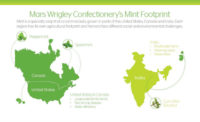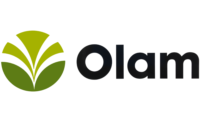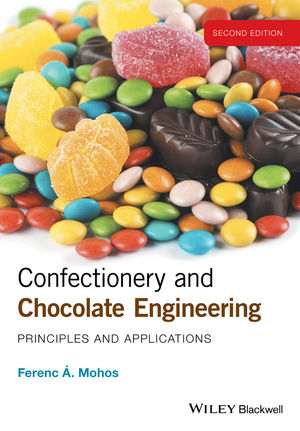Blommer and Olam join forces for GrowCocoa
The chocolatier and supply chain manager to continue promoting cocoa sustainability through education-centered venture


|
GrowCocoa — a sustainability effort recently established by Blommer Chocolate Co. and supply chain manager Olam International — will help farmers do exactly what its name asserts: grow cocoa.
Kip Walk, Blommer corporate director of cocoa and sustainability, says after working together for eight years to protect and promote cocoa farming, the two companies have decided to formally recognize their continuing partnership.
“The GrowCocoa brand was really something that was created most recently to put a name to our efforts in Indonesia and the Ivory Coast,” Walk says.
Since their first collaboration, Blommer Chocolate and Olam have focused on providing cocoa farmers with high quality, high-yielding agricultural practices and the abilities to interact and compete in the cocoa industry.
“Bringing farmers together, then being able to provide them teachings and technologies to improve yields, to improve quality, and also to improve the business skills to allow them to reach out to international companies such as Olam and Blommer is the correct path for long-term sustainability in these sectors,” Walk explains.
It seems to be working. Blommer and Olam have helped a total of 55,000 famers, and in Indonesia, production increased from 760 kg per hectare in 2006 to 1,100 kg per hectare in 2010. Additionally, the average income for the Indonesian farmers increased 117%.
And now, after taking the new name, Blommer and Olam have turned their attention to Nigeria. Tentatively, they will begin work there in October with the start of a new season.
“Nigeria is not a well known origin for cocoa — the primary origins are Ivory Coast and Ghana,” says Chris Brett, Olam senior vice president and head of corporate responsibility and sustainability. “So, looking at Nigeria is a great way of taking this relationship to the next origin, but also being able to link those farmers through to the market.”
In the long term, Chicago-based Blommer Chocolate and Singapore-based Olam International hope to almost double the number of participating farmers by 2015. They will also continue to combat loss of arable land, competition with other crops and the disinterest of future cocoa farmers to ensure cocoa farming remains viable for years to come.
“The sustainability aspect has a true value across the supply chain in cocoa not only for the consumer, Walk says. “It is a necessity for the farming community to build up those skills to capture better value and to make cocoa not just a subsistence-type livelihood, but a true business, and to be able to move forward as strong partners for the cocoa community.”
While sustainability is a challenge for the entire industry, Brett is pleased GrowCocoa is tackling it head on.
“It’s very difficult for a lot of the industry to translate that need into real demonstrable work on the ground, and I think GrowCocoa is a great example of taking that need through the supply chain and working directly with the producers to increase cocoa,” Brett says.
Looking for a reprint of this article?
From high-res PDFs to custom plaques, order your copy today!










